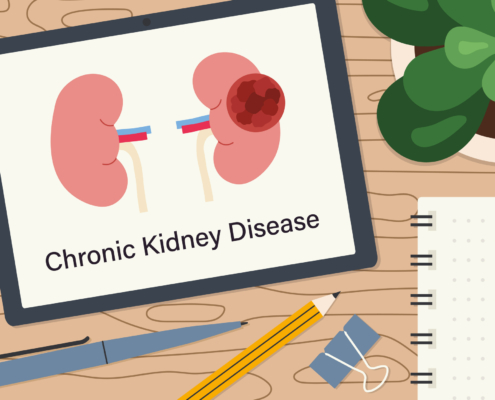You should see a dietitian who specializes in kidney disease. Be aware that all dietitians are nutritionists, but nutritionist are not dietitians.
While the terms “dietitian” and “nutritionist” are often used interchangeably, there are important distinctions between them. Dietitians are strictly regulated and must undergo a rigorous process to become credentialed, whereas nutritionists don’t necessarily have to undergo any particular education or training. Only dietitians are qualified to provide medical nutrition therapy for patients with kidney disease.
Dietitians who specialize in the nutritional needs of people with CKD are called renal dietitians. You can find a registered dietitian who specializes in kidney disease through the Academy of Nutrition and Dietetics online or through your health care professional.
Dietitians must have analytical abilities to collect, analyze, and interpret data from different sources, such as medical records, laboratory tests, dietary assessments, or research studies. Additionally, they need to be able to think critically and apply evidence-based practice, clinical reasoning, and problem-solving skills to make informed decisions


